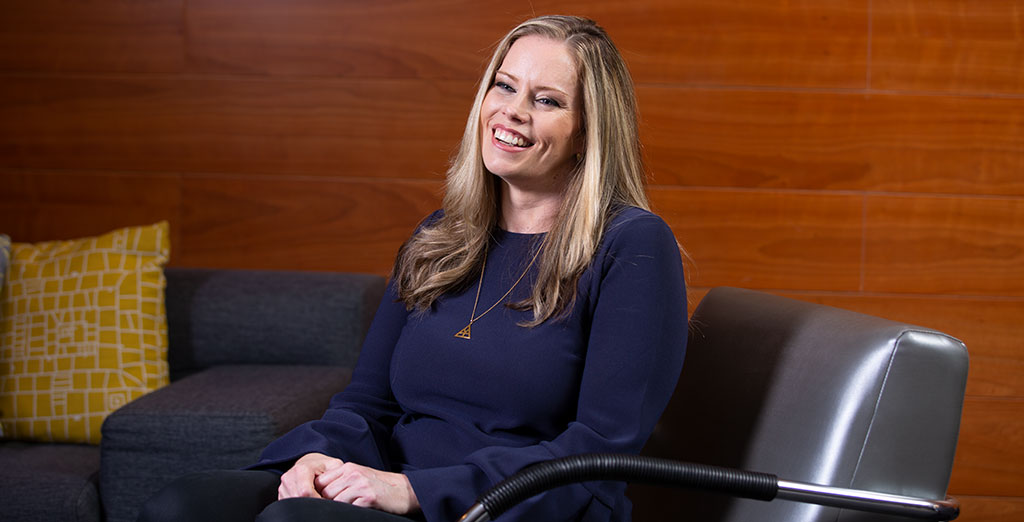Get Focus insights straight to your inbox
During day one’s panel discussion at the Financial Planning Summit, René Grobler (Head of Investec for Intermediaries and Cash Investments) asked Jeanette Marais (Deputy Chief Executive Officer - Momentum Metropolitan Holdings) how the average South African was coping financially, seven months into the coronavirus pandemic.
“9 out of every 10 people in SA are worried about being able to pay their monthly bills,” came Jeanette’s reply.
It’s a statistic that succinctly describes the fear and uncertainty, particularly around financial stability, cast on our population by Covid-19. As a financial adviser who cares for your clients and their well-being, their stress and anxiety have likely become yours. Never have they relied on you more.
But by carefully observing how they’ve responded to the pandemic, you’ll see some valuable clues about the direction your advisory business needs to take in order to thrive in this changed world.
They’ll pay for your guidance, not products
In another presentation from the Financial Planning Summit, dealing with how financial advisers could emerge from the pandemic stronger, Peter Mann (Independent Non-executive Director - Bravura Solutions) highlighted some of the big changes shaping the advisory landscape in the UK, and that’ll likely come to define the SA market in time.
The first on his list was the paradigm shift from delivering products, to delivering advice. More specifically, revenues from ongoing advice are rising, while commission-based revenues are falling.
The human touch; that is what they want to pay for.
To be sure, this change was underway before Covid-19 struck. But, like so many things, it’s a trend that has been accelerated by the crisis. And it makes sense. Finding your clients an appropriate risk or investment product is important, but it does little to quell the anxieties that come with managing one’s finances. Instead, your clients want to know they’ve got someone they can turn to when they feel uncertain or fearful. The human touch; that is what they want to pay for.
Nicole Shields, Head of Business Insights and Solutions for Investec for Intermediaries agrees. “Long gone are the days of pushing the products of the big houses on to clients, without regard to their suitability,” she says. “Focusing on the needs of the client therefore implies a high level of communication between advisers and the financial institutions that create the products, to fulfil the needs of clients.”
They’ve embraced digital, so should you
Peter Mann continues, “30% of UK financial advisory businesses were actively looking at how they could engage with their clients outside of traditional face-to-face meetings. Many found themselves unable to move from exploration to implementation because their clients resisted the change.” It’s a hurdle, he says, that’s now been removed.
All generations, in an effort to stay connected to friends and family during the pandemic, have had to get comfortable using the likes of Zoom. These technologies turned out to be simple to operate, paving the way for use in other areas of their lives, engaging with their financial advisers being an example.
When René Grobler asked David Munro (Chief Executive - Liberty Holdings) for his thoughts on how digital would impact the behaviour of advisory clients, he replied, “Once society finds a better way of doing something, they don’t go backwards.”
This is a notion that worries some financial advisers. Either they’re concerned because they don’t have the time or expertise to offer their clients a digitally enabled service, or they’re anxious it won’t allow them to build the human connection on which their previous business models relied on so heavily.
These are understandable fears, but ones that must be overcome – many of your clients will now prefer to engage digitally on a number of fronts. But it’s not only for their benefit.
“Once society finds a better way of doing something, they don’t go backwards.”
Developing a digital communications capability will allow you to scale your business. Less travelling means more time to digitally engage with existing and potential clients. Pair this with strategic content and social media initiatives, and you can service more clients without increasing your working hours.
Importantly, it also means that financial institutions – insurers, banks and asset managers – need to be digitally enabled, according to Nicola Rowbotham, Head of Technology and Operations at Investec for Intermediaries. “The digital interface between financial adviser and institutions is critical in ensuring the success of any engagement with clients,” notes Rowbotham.

The digital interface between financial adviser and institutions is critical in ensuring the success of any engagement with clients.
They’re ready for you, more so than before
Another interesting statistic from Peter Mann’s presentation was that 64% of people between the ages of 18 and 30 are now considering getting financial advice. This is surprising given that the individuals in this age bracket fall into the Gen Z and Millennial cohorts, both of whom prize the DIY approach across all aspects of their lives.
In South Africa, this demographic is largely underrepresented when it comes to quality financial advice. But now, with their willingness to use digital channels, and your advisory businesses’ ability to communicate digitally, there exists an opportunity to serve an untapped market in a feasible manner.
If you want to secure the future of your advisory business, these are the doors, opened by Covid-19, that you need to consider walking through.
Other important lessons
Below are a few more insightful nuggets – applicable to the success of financial advisory businesses like yours – that came out of the Financial Planning Summit:
- Explore how you can use technology to improve your back-office systems. This will allow you to spend more time with your clients, improve their experience, and add to your bottom line.
- Work with your chosen providers to reduce the complexity that often surrounds their products. It’ll limit the time you spend explaining, and your clients will appreciate the simplicity.
- Start your succession planning over five to seven years, at the very least, before you plan to sell or hand over the reigns of your advisory business. Anything shorter and you’ll get a sub-optimal outcome.
Of all the ideas put forward on how to become a better financial adviser post Covid-19, one stood out in its overwhelming acceptance. Giving financial advice, now more than ever, requires human understanding, empathy, and trust.
At this juncture, it’s easy to become overwhelmed by the effects of the pandemic and the pressure to make changes to your advisory business. But if you put the needs of your clients at the forefront of your decision making – channelling that very instinct that saw you enter the profession of giving financial advice in the first place – then the future of your business will be brighter.




